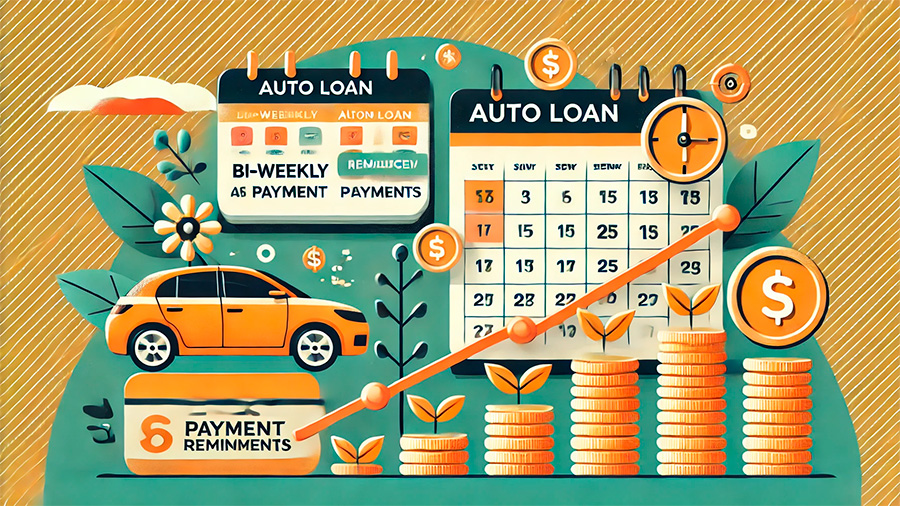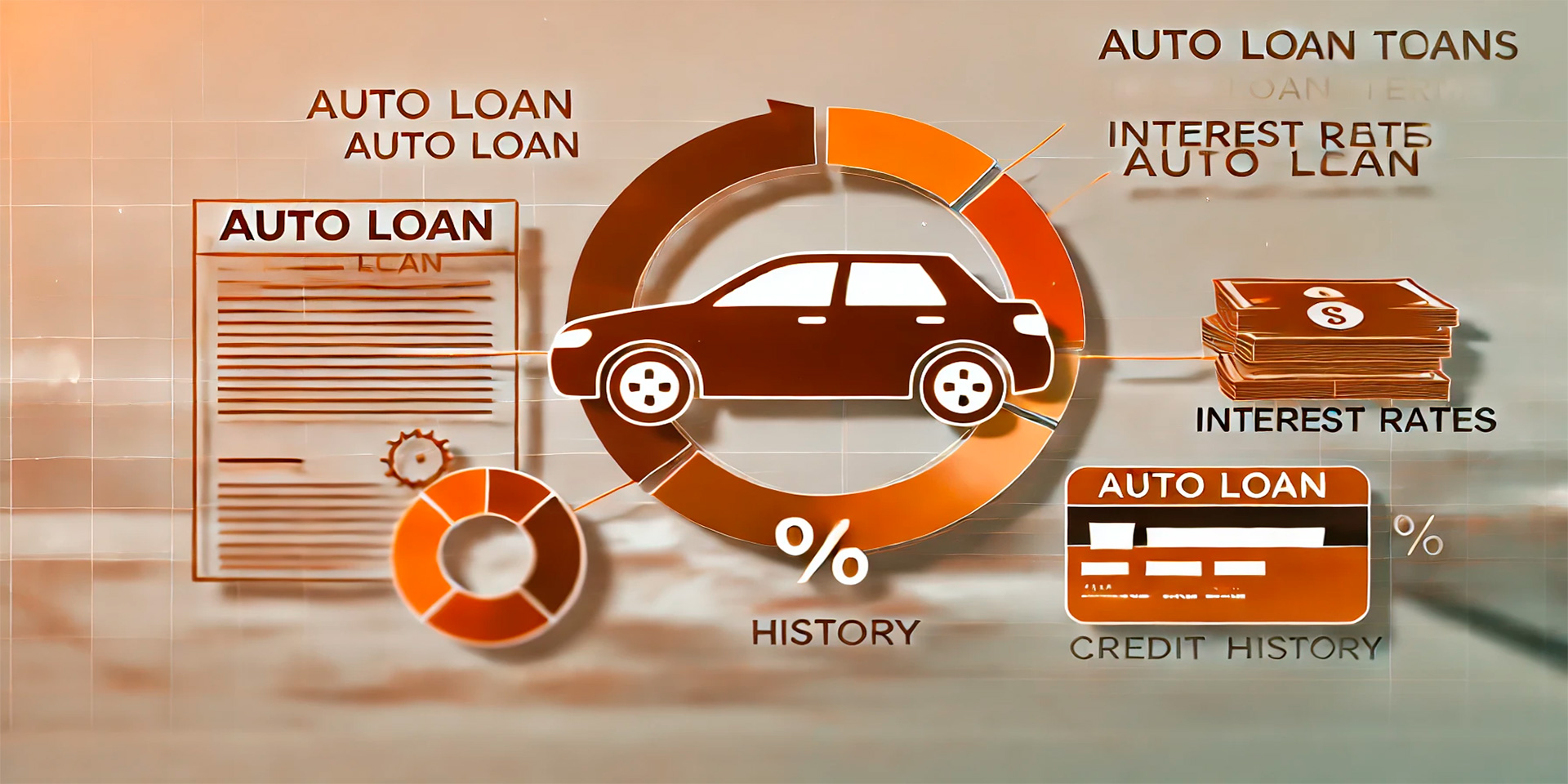Purchasing a car is a significant financial decision, and for many, it involves taking out an auto loan. Buying a car on credit allows you to drive the vehicle you need without paying the full price upfront. However, understanding how auto loans work, how your credit history affects your options, and how to secure the best possible terms is essential for making a smart financial choice. This guide will help you navigate the auto loan process with confidence, ensuring that you make informed decisions that align with your financial goals.
Auto loans can be complex, but by gaining a clear understanding of interest rates, loan terms, and the impact of your credit history, you can secure favorable financing and avoid common pitfalls. Whether you’re a first-time car buyer or looking to upgrade your vehicle, this article will provide the knowledge you need to approach auto financing with confidence.
The Role of Credit History in Auto Loans
Your credit history is a key factor in determining the terms of your auto loan. Lenders use your credit history to assess your risk as a borrower, which influences the interest rate and loan amount you’re offered. A strong credit history can help you secure a lower interest rate, reducing the overall cost of the loan, while a weaker credit history may result in higher rates and more restrictive terms.
Before applying for an auto loan, it’s important to review your credit report and take steps to improve your credit score if necessary. Simple actions like paying down existing debt, making all payments on time, and avoiding new credit inquiries can boost your score and improve your loan options.
If your credit history is less than perfect, you may still be able to secure an auto loan, but it’s likely to come with higher interest rates. In such cases, consider saving for a larger down payment or exploring options like a co-signer to improve your chances of securing better loan terms.

Understanding Auto Loan Interest Rates
Interest rates are a critical aspect of any auto loan, as they determine how much you’ll pay in addition to the loan principal over time. The interest rate you’re offered will depend on several factors, including your credit history, the length of the loan term, and current market conditions. A lower interest rate can significantly reduce your monthly payments and the total cost of the loan.
Fixed-rate auto loans are the most common, providing the security of consistent monthly payments throughout the life of the loan. This stability makes it easier to budget and plan for your financial future. However, if you have strong credit, you may qualify for promotional interest rates or zero-interest financing options offered by some dealers, which can make financing a new car more affordable.
It’s important to shop around and compare interest rates from different lenders, including banks, credit unions, and online lenders. Pre-approval can also give you an idea of the rates you qualify for, allowing you to negotiate better terms when you’re ready to make a purchase.
Choosing the Right Loan Term
The term of your auto loan, or the length of time you have to repay it, is another crucial consideration. Loan terms typically range from 36 to 72 months, with some extending even longer. While longer terms can lower your monthly payments, they also mean you’ll pay more in interest over the life of the loan. Shorter terms, while requiring higher monthly payments, reduce the total interest paid and help you build equity in the vehicle more quickly.
When choosing a loan term, consider your financial situation and how long you plan to keep the car. If you expect to trade in or sell the vehicle within a few years, a shorter loan term may be more beneficial. However, if lower monthly payments are a priority, a longer term might be more appropriate. Just be mindful of the potential for negative equity, where you owe more on the loan than the car is worth, especially if the car depreciates quickly.

Smart Strategies for Managing Auto Loans
Securing a favorable auto loan is just the first step; managing the loan effectively is equally important. To ensure you stay on track, start by setting a realistic budget that includes not just the monthly loan payment, but also other vehicle-related expenses such as insurance, maintenance, and fuel. This holistic approach to budgeting will help you avoid financial strain and ensure you can comfortably afford your car.
Making extra payments toward the loan principal when possible is another smart strategy. Even small additional payments can reduce the total interest paid and help you pay off the loan faster. Some lenders may also allow you to make bi-weekly payments instead of monthly ones, which can accelerate your repayment schedule.
It’s also important to avoid taking on more debt than you can handle. While it may be tempting to finance a more expensive vehicle, it’s essential to choose a car that fits within your budget and long-term financial goals. Remember that cars depreciate over time, so it’s wise to consider the long-term value of the vehicle relative to the loan amount.
Exploring Refinancing Options
If you’ve already secured an auto loan but find yourself with a higher interest rate or less favorable terms, refinancing might be an option worth exploring. Refinancing involves replacing your current loan with a new one that has better terms, such as a lower interest rate or a shorter loan term. This can reduce your monthly payments and the overall cost of the loan, freeing up resources for other financial priorities.
Refinancing can be particularly beneficial if your credit score has improved since you first took out the loan or if interest rates have dropped. However, it’s important to carefully review the terms of the new loan and consider any fees associated with refinancing to ensure that it’s the right financial move for you.
Conclusion
Navigating the process of buying a car on credit can be challenging, but with the right knowledge and preparation, you can make confident, informed decisions. Understanding the role of your credit history, securing favorable interest rates, and choosing the right loan term are all essential steps in making smart auto loan choices. By managing your loan effectively and exploring refinancing options when appropriate, you can ensure that your car purchase supports your overall financial health and long-term goals. With careful planning, buying a car on credit can be a positive step toward achieving financial stability and driving the vehicle that meets your needs.

